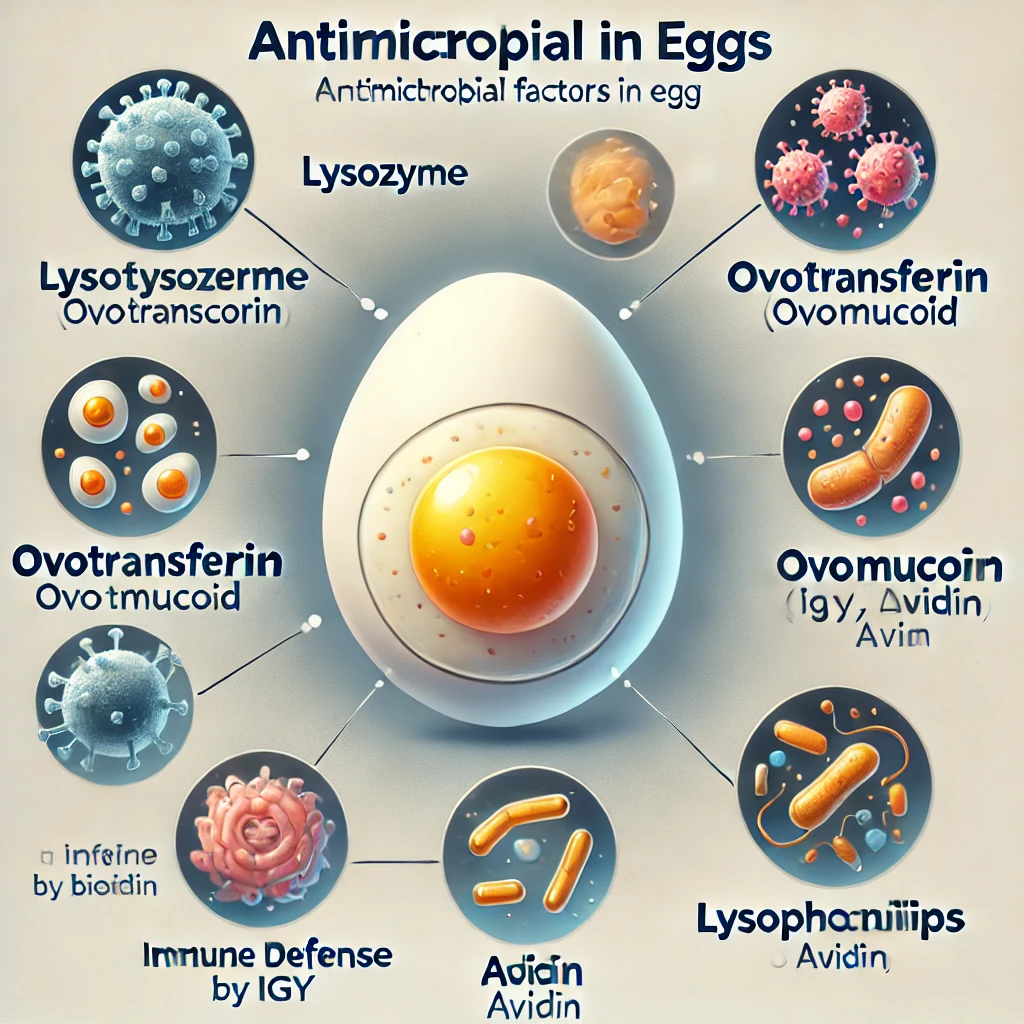Antimicrobial Factors in Eggs
Eggs are not just one of the most versatile and nutritious foods in the world; they are also a scientific marvel, packed with natural antibacterial agents that hold immense potential for health supplements and therapeutic applications. Today, we delve into the fascinating antimicrobial factors in eggs that contribute to their antimicrobial activity and explore their applications in health and wellness products.
Key Antimicrobial Factors in Eggs
- Egg Yolk Antibodies (IgY)
The egg yolk contains IgY (Immunoglobulin Y), a type of antibody passed from hens to their eggs to provide immunity to the developing chick. IgY has been shown to effectively neutralize specific harmful bacteria and pathogens, making it a valuable ingredient in gut health supplements and immune support products. Hyperimmune egg yolk IgY, derived from hens immunized with specific antigens, contains targeted antibodies that provide enhanced protection against specific pathogens. This makes it particularly effective in addressing gastrointestinal issues and supporting overall immune health. It is already being used in functional foods and supplements to promote digestive health and overall well-being. For more details on the health benefits of IgY, check out this research article on PubMed.
- Antibodies in Egg White (IgA and IgM)
Although present in lower concentrations, egg white contains antibodies such as IgA and IgM, which help recognize and neutralize specific pathogens, further enhancing antimicrobial defense.
- Lysozyme in Egg Whites
Lysozyme, found in egg whites, is an enzyme that breaks down bacterial cell walls, effectively combating harmful microorganisms. This natural antimicrobial agent is widely used in food preservation, nutraceuticals, and even pharmaceuticals, thanks to its safety and efficacy.
- Ovotransferrin
Egg whites also contain proteins such as ovotransferrin, which exhibit antibacterial properties. Ovotransferrin binds the iron, depriving bacteria of a key nutrient for growth. This protein has potential applications in dietary supplements aimed at supporting immune health and preventing infections. Learn more about food proteins’ impact on health on Healthline.
- Avidin
This protein, present in egg whites, binds to biotin (vitamin B7), preventing its use by bacteria. While this may be harmful to some microorganisms, it’s generally not a concern for human health as biotin is abundant in most diets.
- Other Bioactive Compounds Eggs also contain peptides and other bioactive molecules with antimicrobial properties. These compounds are being studied for their potential in treating infections, enhancing gut microbiota, and improving overall health.
Applications of Antimicrobial Factors in Eggs
The unique Antimicrobial Factors in Eggs are finding increasing use in the development of health supplements and functional foods. Here are some promising applications:
- Gut Health Supplements: IgY and lysozyme are being incorporated into products designed to balance the gut microbiome, protect against gastrointestinal infections, and support digestion. Visit our product page on Natriviga’s Gut Health Supplements for more insights.
- Immune Support: Egg-derived antibodies and proteins are used in formulations to enhance immune function and provide natural defense against harmful pathogens. Hyperimmune egg yolk IgY, in particular, offers targeted immune support by neutralizing specific pathogens that disrupt gut and immune health.
- Food Preservation: Lysozyme is used as a natural preservative in cheese, wine, and other food products to inhibit bacterial growth and extend shelf life.
- Therapeutic Products: Researchers are exploring the use of Antimicrobial Factors in Eggs in the treatment of infections, including antibiotic-resistant strains of bacteria.
Why Eggs Are Nature’s Antibacterial Powerhouse
The antibacterial properties of eggs are a testament to nature’s ingenuity. These antimicrobial factors in eggs evolved to protect the developing chick, ensuring its survival in challenging environments. Today, science is harnessing these natural defense mechanisms to create innovative solutions for human health and wellness.
As research continues, the potential of egg-derived antibacterial agents is expected to grow, paving the way for safer, more effective health products. From supporting digestion to enhancing immunity, the humble egg proves to be much more than just a breakfast staple – it’s a powerhouse of natural health benefits.
For additional resources on egg-derived antibacterial agents, visit Egg yolk IgY.
Eggs truly hold golden secrets within their shells. By unlocking these antibacterial treasures, we can develop products that not only improve health but also bring us closer to the sustainable and effective use of nature’s resources.
